So, your friend doesn’t believe in God because the Universe doesn’t seem designed right. Today, you get to play God and design your own Universe for your friend. It’ll be fun. Ready?
Design your own Universe? Yep. I’m serious. That’s what we’re going to do today.
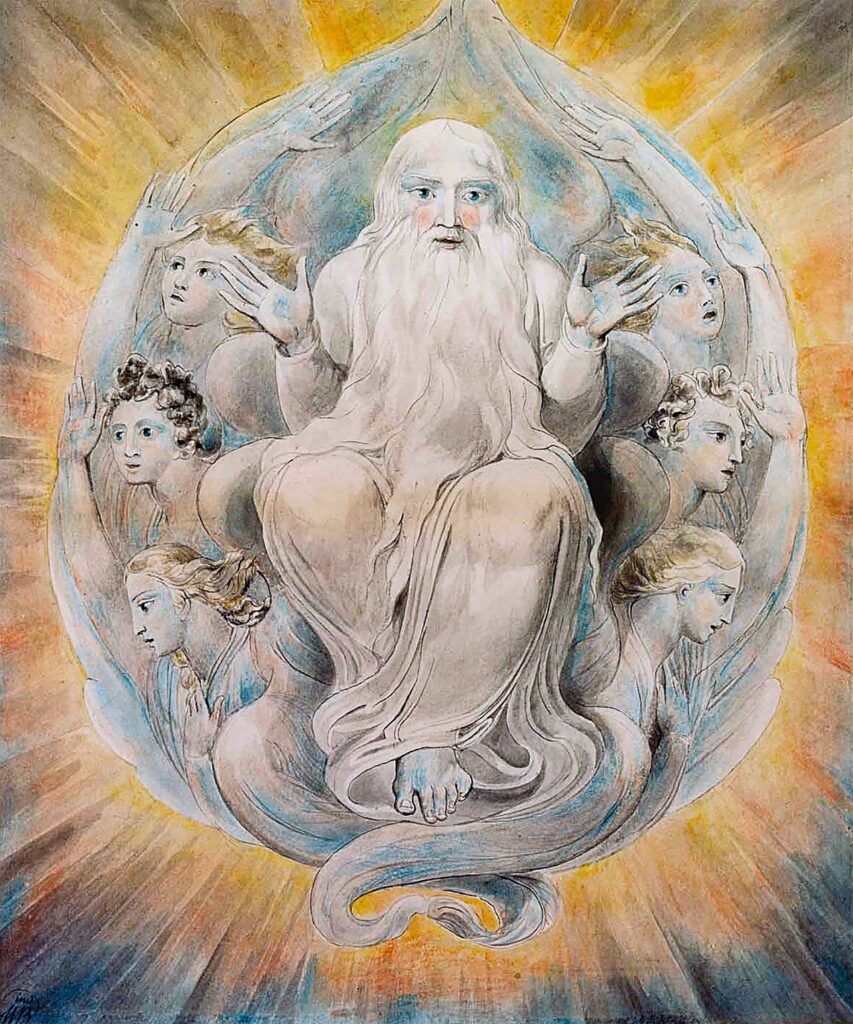
Here you are. You don’t believe in God because you don’t like what you see in the Universe. So, my question to you is, “how would you have designed it if you were God?” Would your design pass everyone else’s God-test? Let’s try it.
First, we’ll have to lay out some fair rules of the design game. When we talk about God, we’re talking about the same entity. We’re not talking about some less-than-perfect God. We’re talking about a God that everyone would agree could be described as Maximized Awesomeness.
When it comes to God, what is Maximized Awesomeness? It’s that than which there could be nothing more awesome, nothing greater, nothing better. In short, it’s Perfection. It doesn’t matter if you envision Divine Perfection to be human-like in any way. If you prefer a pronoun like He, She, It or They, the only part of that that is relevant to this question is how such a preference fits into the picture of Maximized Awesomeness.
Since we’re talking about a concept and we’re designing both our own Perfect God and our own Universe, I like to refer to this God we’re talking about as an “It.” Any other pronoun attributes can be added later if we’ve found it useful based on the logic of Perfection.
Second, we’ll keep this discussion, philosophical, rather than traditional. In other words, we won’t assume that the Rig Veda or the Q’uran or the Bible or some Church or institution is dictating what we have to expect from the God we create. And along those lines, we want to ask about the validity of creating God in our own image. We want to make sure we don’t do that. We’re judging God. That may sound irreverent, I know. But this is a thought experiment. We’re asking what Maximized Awesomeness is. We’re asking what Perfection is.
We’re asking whether the Universe we get to create lines up with Divine Perfection. We want to know what to expect from that than which there could be nothing greater. Right? That’s what I mean by judging God. We’ using the definition of Perfection as that than which there could be nothing greater as a description of God that we are all going to agree to agree on. If your idea of God is something else, then this thought experiment won’t work. But if you or your friend expect this from God, and are currently judging God, supposing God can’t exist because the Universe doesn’t look like it was created by Maximized Awesomeness, then this thought experiment is for you. Fair?
So, those are the rules of the game. If we don’t wind up with a six thousand year old Universe that doesn’t line up with the book of Genesis, we don’t say God doesn’t exist. This is not a tradition test. It is a God test. Ready to play?
Let’s start with some theology. We can assume that an all-powerful, all-wise and good God, would create a Universe that was as good as possibility would allow, if such a God was real. Would such a Universe involve something called salvation? Does Perfection have need of salvation? No. God doesn’t need salvation. But would a Universe God created stand in need of it? If so, what type of salvation are we talking about?
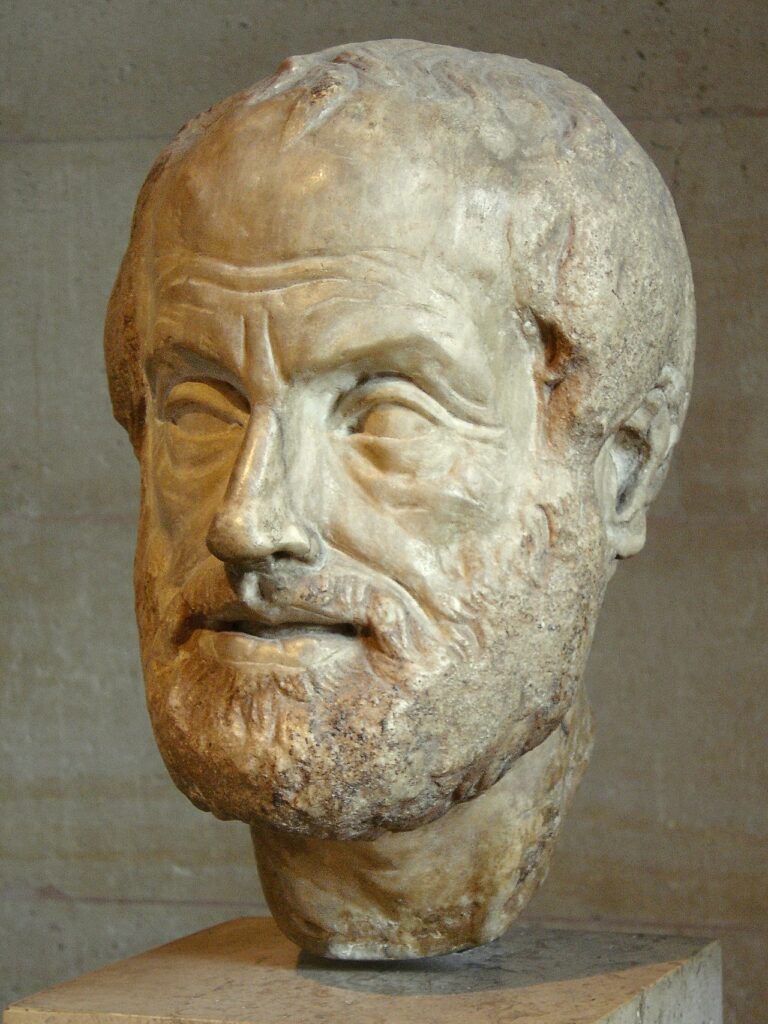
I talked about different concepts of salvation around the world in my Christmas blogcast. Each episode builds on the last, so I recommend you start from the beginning. For the moment, let’s look at just one notion of salvation, which is the perfecting of all things.
It stands to reason that if Maximized Awesomeness is real, then It possesses all that could be good. In other words, if anything would be good, then it is true. It’s the definition. But let’s look more closely at this. Would it be good if you were happy? I’m sure you’d say yes. And if that is true, then you would have to exist. Wouldn’t you? But are you God?
You might say you have to be God in order to be you because if it is good for you to be happy then you being happy is one of God’s own attributes. But are you God? You’re playing God. You’re creating your own God in this thought experiment. But what are you? You being happy has to be part of God, but you know that there are many other good things that could happen. Me being happy, for instance. Are you me? Am I you?
The two separate good things – you being happy and me being happy would both be included in the goodness of God, that lacks no good thing. And, in fact, every way in which either you or I could be happy is included in the goodness of God. It all stems from the definition, which states that God is that than which there could be nothing better – Maximized Awesomeness. Maximized Awesomeness requires every version of you or me that could be happy, and an uncountable number of other entities being happy too, with all variety and abundance.
Now, that may not be the type of Universe you or your friend would have created if you were God, but if God were Maximized Awesomeness, it follows that all these things would, in fact, be true. Don’t you think?
Wouldn’t you say that a Universe in which every version of you, me an everyone else experienced every possible way of being happy would both be an ideal Universe and one you would expect if God was truly real as Maximized Awesomeness? I do. It’s just where that logic leads.
This is why, if my God, which is Maximized Awesomenss, were to design the Universe, it would be poly-astronomical. For Maximized Awesomeness to be true, every possible way for me to be happy would have to be realized. God’s creation would include so many possible good versions of me, of you, and of everything else conceivable, and assumably even much more that neither you nor I could conceive of.
But where does that leave you or me in the Universe we see? Are you omniscient? Am I? Do you know what it is to be me? Have you lived a day in my shoes?
And are either one of us Perfection? Can there be more than one Maximized Awesomeness? I don’t think so. That which is all that can possibly be good can’t have anything more that’s good added to It. Can It? But you’ve agreed that if you, as an individual, were happy, then that would be a good thing. Individuality, therefore, seems like a good and necessary part of Perfection. Perfection seems to have innumerable glories – good things – parts – a host of individual moments of happiness and various good things. Wouldn’t that be ideal?
Maximized Awesomeness is ideal by definition. Therefore, since individuality is part of all that could be good, individuality is part of Perfection. If Maximized Awesomeness is true, then this explains your reason for being. You know you are not Perfection, but part of it, if Maximized Awesomeness is true.
Of course, you know that your life is comprised of many things you find unhappy. You see death, disease, poverty, homelessness, hunger, inequality, injustice, unfairness. You are hurt and you see a hurting world, and you yourself have hurt others. I know I have. And I’m very sorry for that. But my feeling sorry for all of these bad things, especially my own contribution to them, can’t make the Universe perfect. I myself have already contributed to the imperfection of the Universe. I have sinned. And my sorrow for my sins can’t undo them.
The only way to fix this would be to undo time and start over. If I could design my own Universe, I would want to keep all the good parts of this imperfect Universe, and find them included in some other Universe, where I could relive every good part of them whenever I wanted to.
But that’s not something I could do unless I was All Powerful. I’d have to be powerful enough to redo time. I’d have to be powerful enough to pick out only the good parts of possibility, making those things real, while excluding all of the bad parts, and I’d have to have the wisdom to know which was which. After all, I’m not sure we all agree on what constitutes good or bad. I might even like a little suffering if it produced something good. Think of the athlete who trains and breaks his own record. That’s a good thing, right? Does a person running a marathon suffer? I think they do, but a little suffering brings them happiness. It’s hard to be the judge of what is good and bad in every instance. Figuring that sort of thing out, for sure, would require a level of intelligence and understanding that is much higher than my own.
I might have to be God to do that. So yeah, divine wisdom and divine power would be needed. And if the God theory were true, then all this could happen, so long as the bad parts actually didn’t happen. But how could that be? We see them. We know them. We’ve done them.
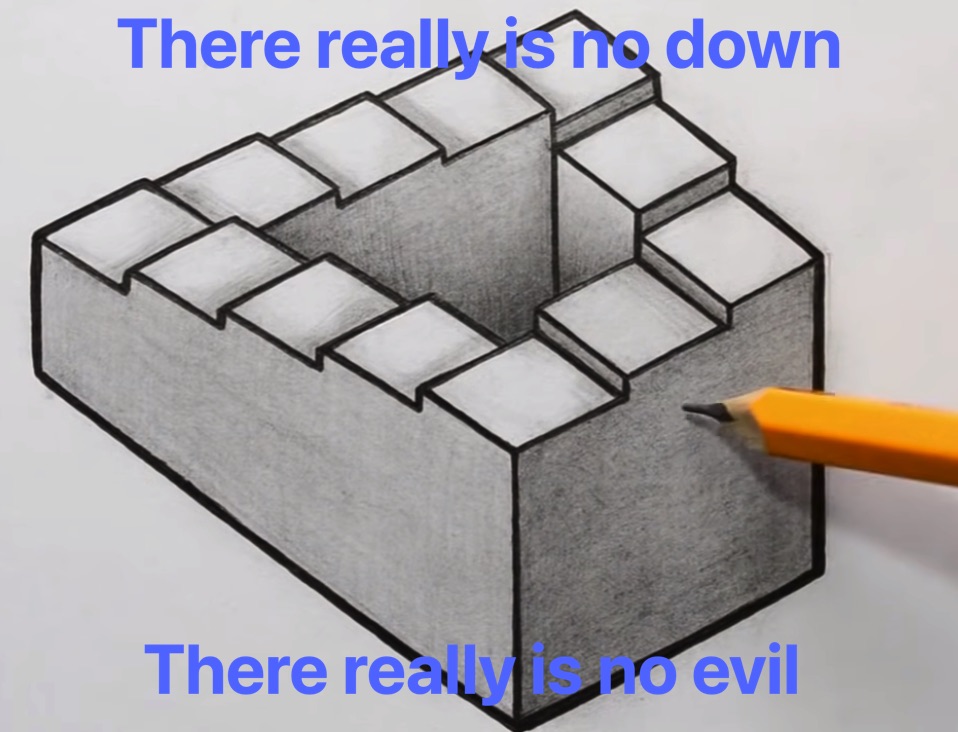
The only way the God theory could be true, is if all these things that we think we’ve seen, known and done, were false memories. They’d have to be illusory in some way – like the Matrix, a simulated reality that wasn’t really real. And that theory sounds far out. Is it?
There may be some theories in quantum physics to support a simulation theory of the Universe these days: some people say the Universe is comprised of nothing but information – but would that make the Universe less than real?
Personally, I think reality matters, and I don’t think that identifying it as mere information is enough to say that it isn’t real. Maybe if time could be reversed or deleted, that would be unreal. The divine hard drive would no longer possess the information, or maybe it never had it to begin with.
No, not maybe – definitely. If I was to create the Universe, I wouldn’t want any of that bad stuff to be on the divine hard drive of reality in the first place. I’d want one perfect reality, plain and simple. Wouldn’t you? It would all be good and it would require lots and lots of Universes so that every good possibility could take place – every possible good version of you, of me, and everyone else, and so much more. And if I were God I would find a real way to make sure no evil ever really happened. Simulation theory wouldn’t be enough to solve the problem of evil. Even if I was to discover that everything bad was a simulation and everything good was analog and mechanical, I’d still be saying that bad stuff happened on some level. Do you see what I’m getting at?
We also need to talk about the relationship between good and evil. We’ve talked about good and we’ve talked about evil but we haven’t talked about the relationship between them. And here’s what I want to point out. While the evil is definitely not good by definition, the relationship between good and evil may be a good thing in many cases.
Let me ask you something: if I hurt you and you forgive me, would your forgiveness be a good thing? My hurting you would be a bad thing, but your forgiveness would be a good thing. Could you forgive me if I hadn’t hurt you? You see then that this sort of good thing is not possible without having some relationship with a bad thing. But every possible good thing exists in Maximized Awesomeness by definition. Right?
Logically speaking, we’d have to expect that if the relationship with evil could be a good thing, that the ideal Universe, if we were to play God, would be one in which we performed a sort of two-step creation. Part of it, the evil, would have to be non-existent, existing only as a possibility that was never realized. The other part, would have to include every instance of good possible relationship to that non-existent evil.
The result would be the creation of imaginary imperfect Universes or points in time and space. They would exist only as information in a sort of processing portion of the divine hard drive as something hypothetical. If these things were to be real, the the very real ways of relating to them in good ways would be realized, and are realized. Thus if a tragedy occurs, and our feelings of compassion rise up and we run to the aid of the injured, a good thing happens, but the tragedy itself, to which we truly and really would respond, is actually only hypothetical. We, not being aware that it was just an illusion, would really respond in every good way.
Do you see how that might work? In this version of the Universe, consciousness dictates reality. It starts with a hypothetical thought about evil and then responds to it in an instance of a good action or mode of being. In previous blogcasts, I’ve spoken of the mathematical necessity of time and space being dictated by consciousness, rather than consciousness being dictated by time and space.
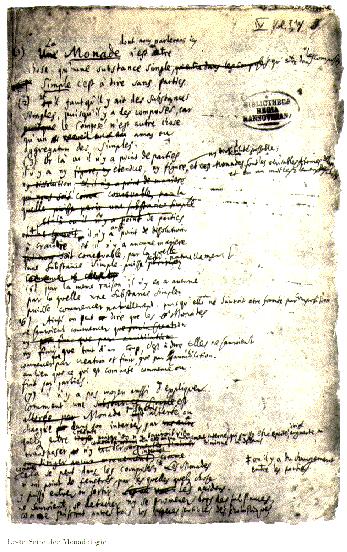
I wouldn’t be the only one to suggest that consciousness was fundamental or intrinsic to reality. The difference between me and other philosophers on this question is that I’ve been pointing out that probabilistic abduction makes it literally most probable that consciousness is what dictates time and space, and not the other way around. The intrinsic nature of consciousness to reality is most probable given probability theory alone, if not logically necessary.
I’ll talk more about what is called the hard problem of consciousness in my next blogcast. Here, I’m just pointing out that for Awesomeness to be truly Maximized, evil as a hypothetical construct of the mind that the mind has a relationship with, would be the best way I can personally think of for reality to be described. There would be Universes which were wholly perfect and fully real, and there would also be Universe that were partially real and partially hypothetical or illusory, so that every good possibility could take place.
In this sort of two-tiered set of Universes, it would be normal to look around and see imperfect things, bad things – wars, famine, disease, injustice, broken families and so much more. For those who understand Poly Astronomically Maximized Awesomeology, in reality, it would be understood that these bad things were illusory. For those not privy to these insights and teachings, they would appear to be real. They would likely think God didn’t exist.
In reality, they would be hypothetical constructs set up in our minds for the sake of granting us the opportunity to respond to them, making real a relationship between good and evil that allowed every good possibility to be realized. Some people would be medics, healing the sick. Some would respond to tragedies, doing great works of charity. Others would pray, lending their love and sympathy. Many would comfort those suffering loss. Forgiveness and loving mercy would abound. Separated husbands and wives would put aside their differences, growing, healing. These would be good things. Whether a person was awakened to the logic of awesomeness or not, the inclination to respond in good ways to these perceived evils would be the same. This is why the Pamalogist suggests that we treat what may be an illusion as if it were real. If you see your hand in front of you, it’s probably your hand in front of you. God can sort out what is truly illusion for us in redemption, salvation and grace. We can see the Universe needs to be fixed. We need a miracle. We need an Almighty God to fix this level of messed-up-ness.
So we might give this two step creation familiar names like redemption, salvation or grace. Those might be good words for it, but I’m just going to call it Perfection.
Let’s talk about Perfection. Perfection is both a noun and a verb. As a verb it perfects. Either it perfect Itself, or it perfects other things, like you or me. When we, who are less than Perfection, are perfected, we might see this as salvation, redemption or grace. We might see it as being born again from above. We might see it as being a new creation. We might see all things being made new. We might find in this miracle that only God, if God were real, could perform, a new heavens and a new earth. A new heavens and a new earth, and a new us, is exactly what we would need.
So, if God were real, I would expect creation to be perfect because God is perfect.
There are two distinct aspects of Perfection as a verb. Perfection as Perfection has nothing to Perfect since the work of Perfection is complete in Itself. It is a triunity of Perfection, Perfecting Perfection, always containing within Itself that than which there could be nothing greater. All Universes are contained and accomplished in this one act of Perfection.
Perfection is a reflexive verb. It Perfects Itself by being what it does and doing what it is, containing all time in Itself in a singular Action. Perfection can’t get help from outside of Itself. It can’t be made by something else. The only Perfecter of Perfection is Perfection – Triunity. Perfection is triune as the Begetter of Perfection, the Begotten Perfection and the Perfecting of Itself, which includes and is beyond all time and creation. There is one Perfection in these three relations – Begetter, Begotten and Begetting.
Do you have some sort of other God than this? Did you have some other expectation of God than what I’m describing? I’d like to hear it. But assuming that I’m describing what you would agree is that than which there could be nothing greater, and that this is what you would expect God to be if the God theory is true, then Perfecting is Triune in this way. It is one Perfection in three relationships. And then including every good individual possibility in Itself, it includes in Itself you and me and every possible good thing too.
This is where redemption, salvation and grace enter the picture. It would be good if that which was imperfect was made perfect. Wouldn’t it? And if so, and Maximized Awesomeness is true, then this also has to be true. If God is true, then redemption, salvation and grace have to be true, as well, so that anything that would have been imperfect, can be made perfect. And while we may not possess the power to perfect ourselves, an All Powerful God most certainly could. An All Powerful God could undo time, make evil a mere hypothetical, and any other funky thing necessary to every good possibility a reality.
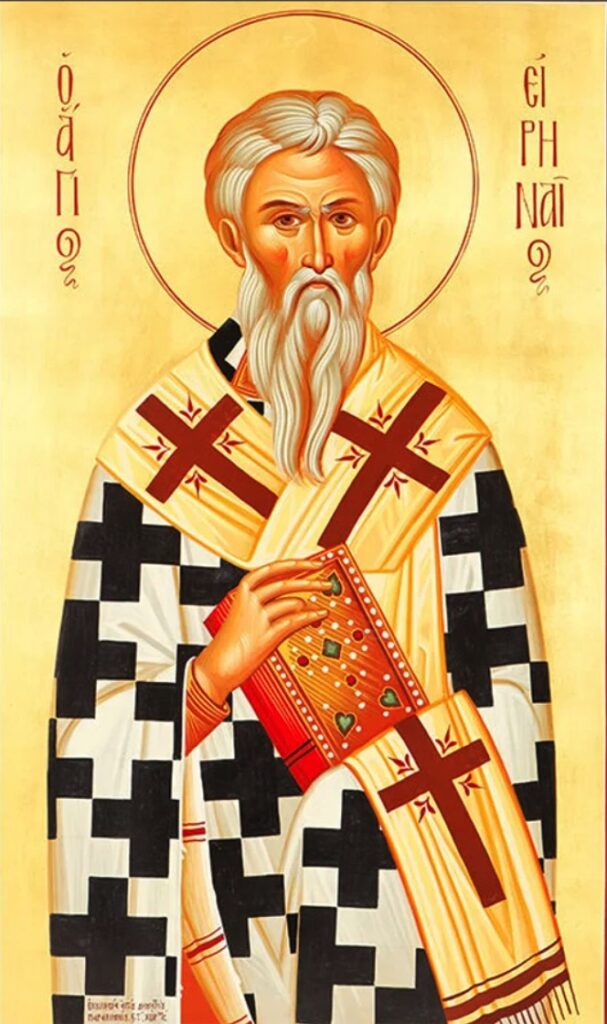
We expect Maximized Awesomeness, or Divine Perfection, to be All Powerful. We’re not going to limit that power by saying It can’t undo what we think is real, or better yet, make it so no evil ever happened. We are going to assume that if Maximized Awesomeness is real, that much of what we think, see and feel is real, is actually illusory. Since we can’t see it or feel it, we have to simply know it. We can believe it. We can hope in it. We can encourage one another that salvation from it makes sense, even when what it looks like we’re seeing is a total disaster. Even if life seems like a living hell, the sobriety of this logic stays with us – we don’t despair. Some of us might even sing a song. We might look like fools to the world smiling in the face of tragedy but we’d be placing our hope on a sure foundation of logic, if at least logic, had shown that Maximized Awesomeness was real.
Now if you want to know Maximized Awesomeness actually is true, then take our free Pamalogy 101 course. For now, we’re just doing a thought experiment, trying to design a Universe that matches up with a Universe that would be created by Divine Perfection.
When I previously spoke of the paradox of the incarnation, I mentioned that Perfection must contain all that could possibly be good. There aren’t many who would say that salvation was something other than good. It might be argued that anything less than Perfection was not good, but then, how would we have variety in the Universe? In fact, how could Perfection contain all that could be good in Itself, if it did not contain that which was less than Perfection as part of Itself? For instance, we talked about Omniscience knowing discovery. If Omniscience doesn’t know discovery, then it isn’t Omniscient. Yet, to discover requires acquiring knowledge not already possessed.
There is a lot more to Perfection than the word Itself. We tend to look at this word, “perfection,” very negatively. We associate it with perfectionism. We beat ourselves up because we’re not perfect. And then one day we finally learn to accept our imperfections and love ourselves. Please be kind to yourself. Forgive yourself. But don’t be confused. When I talk about Perfection, I’m not talking about perfectionism. I’m talking about God Maximizing Awesomeness because that is what God is and does.
The Perfection I’m talking about gives us a sort of divine “two-step.” In my vision of how I would create the Universe if I were God, it works like this: Whatever is less than Perfection is included as Part of Perfection. Perfection Itself is a constant because nothing can be added to It. That includes time and space. Time can’t be added to Perfection. Anything in time is already included in It. We can think of two types of Universes – extra-temporal Universes that include all time within them, and intra-temporal Universes that are part of Perfection, but not Perfection Itself as a whole. And the whole of Perfection contains the combination of all consciousness.
The extra-temporal Universe, or Multiverse, may not be visible from an intra-temporal one, while the combined consciousness of the Extra-Temporal Universe, does have knowledge of the possibility of intra-temporal Universes. But there is something different about it. That knowledge, being Extra-temporal, has already saved each of the intra-temporal Universes by transforming them through a purgation of any evil they might have had. They are complete.

Now pay close attention. When I say “might have had,” what I mean is “could have had but didn’t have.” This is to say that in the divine “two-step”, reality co-exists with the hypothetical. The reality belongs to both the Extra-temporal and the Intra-temporal worlds as part of Perfection. The hypothetical exists as an imaginary Universe of possibility that is never realized. It is not a part of reality except as that to which salvation is eternally applied. It is known only as the stuff that didn’t ever happen due to the redemption of Perfection. Reality only exists if it exists in the Extra-temporal Multiverse, which is Perfection. Any temporality that has not been saved, in other words, perfected, exists eternally only as a hypothetical possibility. It is never realized. Only the good in it is realized.
I believe that if you were to create the ideal Universe as God, that’s how it would be done. Just as unknowing is intrinsic to Omniscience, likewise, sin is intrinsic to Perfect Redemption. If you want the Perfect attribute, you may not want the imperfections but you still need the hypotheticals that would be imperfect to respond to relationally in every good and perfect way.
Only in that way could Perfection be complete by lacking no good thing. It is among many other good attributes, inherently salvific. It’s part of what I’ll call the Pamalogist’s theodicy, a point that other philosophical systems need to take into account. I’ll be coming back to this in future blogcasts as we discuss the various theories of consciousness that are growing in popularity in philosophy today. If the problem of a fallen Universe is seen in this light, the God theory may not be so obsolete as many suppose. God is not dead. And salvation may mean much more than many, not just philosophers, have considered.
Pamalogy is a philosophical system involving the logic of awesomeness. Let me know what you think. I’ve shared what I would do if I were God. What is your God like? What does your God’s world look like? Send me a note. Feel free to add some money so we can build a truth machine. Did you make a list of all the good things you could do before you die? Send that too. We have a lot to talk about. Ciao!
URL for sharing this transcript page: https://pamalogy.com/2022/01/01/design/
URL for sharing this podcast: https://player.captivate.fm/episode/faaf4abb-13b4-4a34-8be4-df6b31e35f87
URL for sharing just the audio file: https://podcasts.captivate.fm/media/abe2a1ee-d83d-45a3-90a1-e95d4bf3ae9a/episode8-design.mp3
Previous: Salvation
Up Next: Connection



